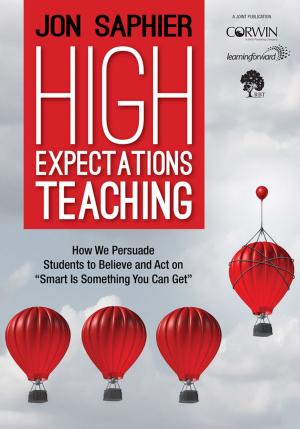Grounded Theory
A Practical Guide
Nonfiction, Reference & Language, Reference, Research, Social & Cultural Studies, Social Science| Author: | Melanie Birks, Jane Mills | ISBN: | 9781473917064 |
| Publisher: | SAGE Publications | Publication: | February 9, 2015 |
| Imprint: | SAGE Publications Ltd | Language: | English |
| Author: | Melanie Birks, Jane Mills |
| ISBN: | 9781473917064 |
| Publisher: | SAGE Publications |
| Publication: | February 9, 2015 |
| Imprint: | SAGE Publications Ltd |
| Language: | English |
This highly practical book introduces the whole range of grounded theory approaches, providing a comprehensive description of the strategies and techniques employed in this methodology. Unlike most existing books in this area, it is not written from a particular philosophical standpoint, and is the ideal first introduction for any student or researcher looking to use grounded theory in their analysis for the first time.
Birks and Mills’ accessible and highly-readable text is driven by practical case examples throughout to help the reader get to grips with the process of doing grounded theory analysis for themselves. The book deploys a variety of educational activities to guide readers through both the principles and the application of grounded theory, making this an ideal starter text for those new to the approach.
This updated Second Edition:
- guides the reader through each step of the grounded theory process
- clearly explains how to memo effectively, using examples
- includes a chapter which explains the difference between data generation and collection
- features information on how to use digital resources to manage data
- discusses the philosophy and ethics of grounded theory within the qualitative paradigm.
This highly practical book introduces the whole range of grounded theory approaches, providing a comprehensive description of the strategies and techniques employed in this methodology. Unlike most existing books in this area, it is not written from a particular philosophical standpoint, and is the ideal first introduction for any student or researcher looking to use grounded theory in their analysis for the first time.
Birks and Mills’ accessible and highly-readable text is driven by practical case examples throughout to help the reader get to grips with the process of doing grounded theory analysis for themselves. The book deploys a variety of educational activities to guide readers through both the principles and the application of grounded theory, making this an ideal starter text for those new to the approach.
This updated Second Edition:
- guides the reader through each step of the grounded theory process
- clearly explains how to memo effectively, using examples
- includes a chapter which explains the difference between data generation and collection
- features information on how to use digital resources to manage data
- discusses the philosophy and ethics of grounded theory within the qualitative paradigm.















